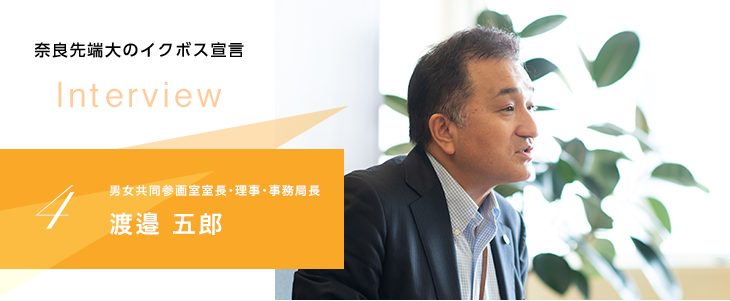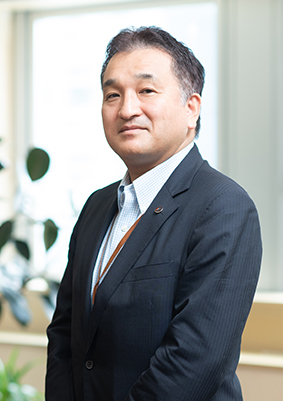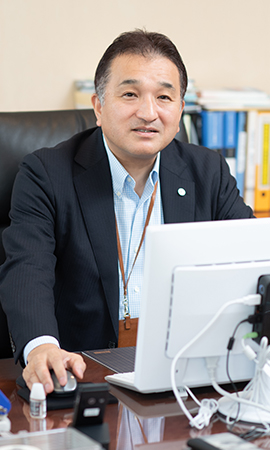
Aiming for a society in which excellent people
are valued regardless of gender

I joined the University of Tokyo in 1986, the year the Equal Employment Opportunity Law was enacted, and at that time less than 10% of administrative positions were held by women. There were a certain number of women in managerial positions. In addition, most of those who took childcare leave returned to work, and I can say that social conditions have changed significantly over the past 30 years. But it is still a male-dominated society. I don't think we've necessarily reached a society where excellent people are valued and promoted regardless of gender, but we need to become a society where excellent people are properly valued regardless of gender in the future.
This is a bit of a change of subject, but I believe that internationalization in the truest sense of the word means that students from overseas will no longer be called "foreign students" but "students", and that there will no longer be a need for a department specializing in international affairs, but in reality there will still be a need for an international department. The same can be said for gender equality, and the gender equality office is still needed. Although the percentage of female faculty members is not high, we have faculty members and students from many different countries, so it can be said that our university is diverse. In the future, I believe that the inclusion of people with disabilities and sexual minorities will also be an issue in the work of the Equal Opportunity Office.
Leaders should be aware of their unconscious bias
in everything they do.
~Initiatives as an "Iku-boss"~
Ideally, we'd live in a world where we didn't have to think about gender equality and it was the norm. But that is not so easy to achieve. That is why I think that those in leadership positions need to understand again why gender equality is necessary. Some people still think that women's participation will reduce performance, but in today's aging society with a declining birth rate, the potential workforce is women. We need to create an environment where women can fully develop their skills and perform at their best. Managers must always be aware of this.
The theme of last year's gender equality seminar, "Unconscious Bias," made perfect sense to me. Like the perception that "women are responsible for raising children," we all have unconscious biases. We need to be aware of them. I think it is especially important for leaders to always be aware of their own situation in everything they do, and to listen to the voices of others without bias and with an open mind. Unless each of us recognizes our "unconscious bias," it will be difficult to resolve issues related to gender equality. However, there may be many people who are not accustomed to doing this. It may be necessary to educate these people from the top down to a certain extent so that they become accustomed to such efforts.
June 2019







